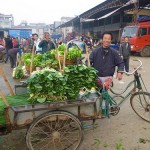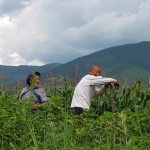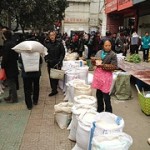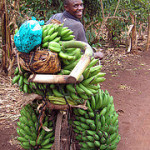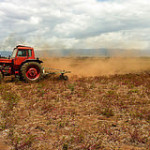Working with leading experts on the reform era who are well informed about the internal processes and logic that drove the reform movement, IFPRI explored China’s economic growth.
Industrialization in China and Africa
The business model called “clustering” involves small businesses that are part of the same industry banding together to specialize in one narrowly defined stage of production. An IFPRI research team completed a study involving four in-depth case studies in China on the subject.
HarvestPlus China
Using innovative ways to fight this “hidden hunger,” HarvestPlus-China contributes to knowledge and technology transfers across research institutions and implementing agencies in both developed and developing countries.
China Strategy Support Program and the International Center for Agricultural and Rural Development
Chinese policymakers are increasingly learning from other international development actors and sharing their own experiences as they design agriculture strategies and poverty-reducing programs. To enhance these collaborations and meet government demand for policy-relevant knowledge, IFPRI launched its China Strategy Support Program in 1996 and subsequently established the International Center for Agricultural and Rural Development (ICARD) in 2003 together with the Chinese Academy of Agricultural Sciences.
Public Investment in Agriculture in China
IFPRI’s Priorities for Pro-Poor Public Investment in Agriculture program, active from 1998 to 2002, provided policymakers with the research-based evidence they needed to determine which investments to make and how to maximize their efficiency in reducing poverty and food insecurity.
The Systemwide Program on Collective Action and Property Rights
The main goal of the CGIAR’s Systemwide Program on Collective Action and Property Rights (CAPRi) is to reduce poverty by identifying effective policies and practices to enhance the use collective action and property rights in order to build secure assets and income streams for and by poor people.
Sustainable Food Security for all by 2020
The conference, focused on four key emerging dynamics: demographic, health, and nutrition forces; economic forces; technological and environmental forces; and sociopolitical forces.
Strengthening Rural Producer Organizations
IFPRI’s research in this area aimed to improve smallholder livelihoods by strengthening the ability of rural producer organizations to improve their members’ access to input and output markets.
Evaluation of Ethiopia Agricultural Growth Program
Upon request from the Ethiopian government and its development partners, ESSP is conducting an evaluation of the Agricultural Growth Program
Computable General Equilibrium Model
To estimate how Ethiopia’s economy might react to certain policy changes, IFPRI and its partners developed, in 2005, the Ethiopian computable general equilibrium (CGE) model
- « Previous Page
- 1
- …
- 13
- 14
- 15
- 16
- 17
- …
- 22
- Next Page »
